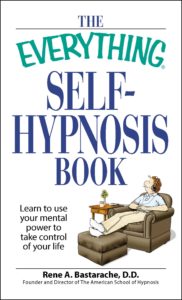Hypnotherapy offers deep relaxation techniques, like muscle relaxation and guided imagery, aiding anxiety relief. Compared to medication, it's drug-free and tackles root causes. Counseling, such as CBT, complements hypnotherapy by reshaping thoughts and behaviors. Research showcases hypnotherapy's positive results and long-lasting benefits for anxiety management. Individuals often experience lasting reductions in symptoms and gain coping mechanisms. Abundant success rates highlight the effectiveness of hypnotherapy, making it an optimal choice for those seeking sustainable anxiety relief.
Clinical Studies on Hypnotherapy Efficacy

In examining the efficacy of hypnotherapy for anxiety relief, numerous clinical studies have provided valuable insights into its effectiveness as a therapeutic intervention. Hypnotherapy techniques encompass a variety of strategies aimed at inducing a state of deep relaxation and heightened focus, allowing individuals to explore and address underlying anxieties. These techniques may include progressive muscle relaxation, guided imagery, and positive suggestion to reframe negative thought patterns.
Patient experiences with hypnotherapy for anxiety relief have been largely positive, with many reporting a reduction in symptoms such as excessive worry, panic attacks, and phobias. Through the use of hypnosis, patients often express feeling more in control of their emotions and responses to stressors. Additionally, individuals have reported increased self-awareness and a greater sense of empowerment in managing their anxiety levels.
Comparison With Traditional Anxiety Treatments
Comparing the effectiveness of hypnotherapy for anxiety relief with traditional anxiety treatments sheds light on the diverse approaches available to individuals seeking support in managing their anxiety symptoms.
When considering medication vs. hypnotherapy, traditional medicines like anti-anxiety drugs can provide quick symptom relief. However, they often come with side effects and the potential for dependency.
On the other hand, hypnotherapy offers a non-invasive, drug-free alternative that focuses on addressing the root causes of anxiety through the power of suggestion and deep relaxation.
In the comparison of counseling vs. hypnotherapy, traditional counseling methods such as cognitive-behavioral therapy (CBT) can be highly effective in helping individuals understand and change their thought patterns and behaviors.
Nevertheless, hypnotherapy can complement counseling by accessing the subconscious mind to reframe negative beliefs and promote relaxation. This dual approach can enhance the overall effectiveness of anxiety treatment by addressing both conscious and subconscious levels of the mind.
Success Rates and Long-Term Benefits

Research studies have consistently demonstrated the positive success rates and long-term benefits associated with hypnotherapy as a treatment option for managing anxiety. When it comes to hypnotherapy outcomes, findings indicate that many individuals experience significant reductions in anxiety symptoms after undergoing hypnotherapy sessions. These outcomes are often maintained over the long term, showcasing the lasting benefits of this therapeutic approach.
One of the key advantages of hypnotherapy in treating anxiety is its ability to address the root causes of the condition, leading to more sustainable results compared to some traditional treatments that may focus solely on symptom management. By delving into the subconscious mind during hypnosis sessions, individuals can gain insights into their triggers and develop coping mechanisms that endure beyond the therapy sessions.
Furthermore, the long-term benefits of hypnotherapy extend beyond anxiety reduction, with many patients reporting improvements in overall well-being, increased self-confidence, and better stress management skills. This holistic approach to healing underscores the value of hypnotherapy as a comprehensive and effective treatment for anxiety.
Frequently Asked Questions
Is Hypnotherapy Suitable for All Types of Anxiety Disorders?
Hypnotherapy's efficacy for anxiety disorders varies. While it may benefit individuals with specific phobias, social anxiety, and some general anxiety, its suitability depends on the individual's responsiveness to hypnosis and the therapist's expertise in addressing these conditions.
How Many Sessions Are Typically Needed for Noticeable Results?
The frequency of hypnotherapy sessions for noticeable results varies based on individual needs. Research suggests that a series of sessions, typically ranging from 5 to 12, can lead to significant long-term benefits in managing anxiety disorders effectively.
Can Hypnotherapy Help With Underlying Trauma Related to Anxiety?
Hypnotherapy can assist in processing underlying trauma linked to anxiety by accessing the subconscious mind. Through carefully guided sessions, individuals can address and reframe trauma triggers, promoting healing and symptom relief.
Are There Any Potential Side Effects or Risks Associated With Hypnotherapy?
In addressing concerns about hypnotherapy, it's essential to note that while generally safe, potential risks and side effects may include false memories, heightened emotional responses, or temporary dizziness. It's crucial to work with a qualified practitioner.
How Do I Find a Qualified and Reputable Hypnotherapist for Anxiety Relief?
To find a qualified and reputable hypnotherapist for anxiety relief, consider credentials such as certification from recognized hypnotherapy organizations, experience in treating anxiety disorders, positive client testimonials, and a transparent approach to therapy.
Conclusion
In conclusion, hypnotherapy has shown promising results in the treatment of anxiety. Clinical studies have demonstrated its effectiveness compared to traditional treatments, with high success rates and long-term benefits.
For individuals seeking alternative therapies for anxiety relief, hypnotherapy may be a valuable option to consider.
Further research and exploration of hypnotherapy's potential in anxiety management could lead to improved outcomes for those suffering from this common mental health condition.


